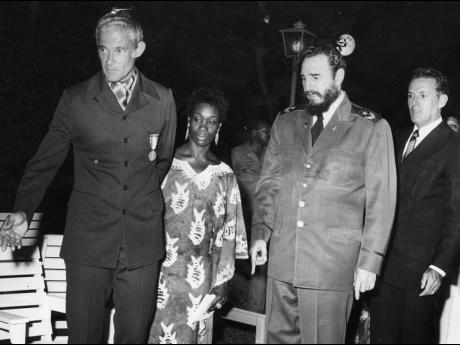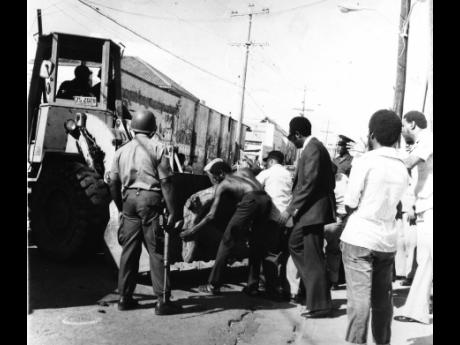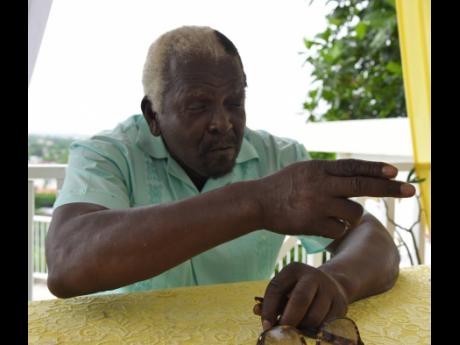Charles: I’ve never spoken to a CIA agent - Retired politician dismisses allegations that US helped JLP topple Manley’s Gov’t
It is a tale that has spread far and wide: the American Central Intelligence Agency (CIA) was helping the Jamaica Labour Party (JLP) to boot the Michael Manley-led People’s National Party (PNP) from Government as the Cold War intensified.
But Pearnel Charles Sr, a key figure in the elections of 1980, has said that as one close to the inner circles of the party and to then JLP Leader Edward Seaga, he had not seen a single engagement with a CIA agent.
“Let me tell you, I have never met a CIA man, and I consider myself to have been very close to the leader of the opposition,” he told The Gleaner recently.
Charles, however, admitted that the JLP had the support of the United States because of the pro-democracy stance it had adopted at a time when communism threatened the country.
He said that the JLP had proof that Ulises Estrada, the former Cuban ambassador to Jamaica, was meddling in the 1980 election campaign.
The JLP used Estrada’s so-called activist approach to foreign affairs to sharpen its message that communism was knocking at Jamaica’s door and would eventually burst open it if Manley’s Government was not stopped.
“As far as we were concerned, he was seen with the police, he was seen speaking at clubs, and his speech was protection for the Government. We, at that stage, said the Cubans were here. Estrada was here representing Fidel Castro, so they are on their way here already, and the Government was forced to called the election early,” Charles said, acknowledging that the campaign was “bloody”.
Estrada was declared persona non grata and expelled by the Edward Seaga-led JLP Government shortly after it took office following the bloody 1980 general election.
“There were all indications that the Cuban government had influence on the Jamaican Government to the point where Michael Manley said he was going to follow Castro to the mountaintop, and we interpreted that to mean he was going to change Jamaica to be like Cuba, and Cuba was a communist government,” Charles reasoned.
Charles said that as the Manley Government began to lose support, violence broke out, and in the campaign period, the JLP had to strongly defend itself against mounting attacks.
“Looking back now, I can’t say that the JLP were like virgins going to be burnt. We defended ourselves. We defended our people, and in other words, if stone was coming from one side, stone had to come from the other side,” Charles said as he reflected on the violence, which claimed 800 lives.
“I couldn’t sit here today and blame one side. I would blame one side for having created the direction, but I would have to say that the other side also followed the direction to protect itself.
“So if they were killing JLP, they were killing PNP. If they were stoning JLP, they were stoning PNP,” Charles contended.



